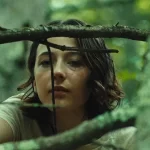Sundance 2017: Pop Aye, by David Bax
Nostalgia would be an inadequate word to sum up the motivations, both thematic and character-based, of Kirsten Tan’s Pop Aye. The protagonist here is not merely romanticizing his past. He’s painstakingly attempting to return to a time and place that literally no longer exists. The driving philosophy can best be summed up by the title of Thomas Wolfe’s novel You Can’t Go Home Again. But with an elephant.
Thana (Thanet Walakulnukroh) was raised in poverty in the town of Loei in Northern Thailand but made his way to Bangkok and became a successful architect. Decades later, he’s near retirement age and the first major building he designed is slated for demolition. Meanwhile, his boss, the millennial son of the man who hired him, continually disregards Thana’s input. The pervading feelings of inadequacy are topped off when Thana, not being exactly the most woke fella, is heartbroken to find that his wife, Bo (Penpak Sirikul) owns a vibrator. After he embarrassingly confronts her about it, it should be no surprise that she later spurns his clumsy sexual advances. In his ensuing despondency, Thana is surprised to find an elephant walking the streets of Bangkok whom he immediately recognizes as his boyhood pet, Popeye. Together, they set off on a walking journey across Thailand back to Loei, where Thana intends to return Popeye to the farm of Thana’s uncle.
Tan cuts back and forth in time, starting with Thana and Popeye already en route and returning occasionally to the days leading up to his departure (and eventually even incorporating memories from his childhood). This methodology keeps the viewer engaged, since the transitions are not telegraphed and often take a few beats to register, but it also allows Tan some inspired notes of poetry. As Bo rides in a taxi, crying as she contemplates leaving her husband, the song on the car radio becomes the same one Thana sings in a karaoke session with a trans woman days later.
Dreamlike touches such as that appear throughout. Pop Aye is by no means fantastical; in fact, most of it is aesthetically matter-of-fact. But you need the real in order to have the surreal and Tan’s overall verisimilitude makes images like a country highway painted with splattered watermelons stand out all the more. She shows a similar restraint with the cuteness. Popeye is adorable, to be sure, but Tan is careful never to be precious, quirky or twee about it.
Despite its idiosyncrasies, Pop Aye is ultimately a boy-and-his-dog story in search of a catharsis that, frankly, you will see coming by the halfway point. Still, it’s executed with a distinction and grace that cause it stand out from the pack.






























